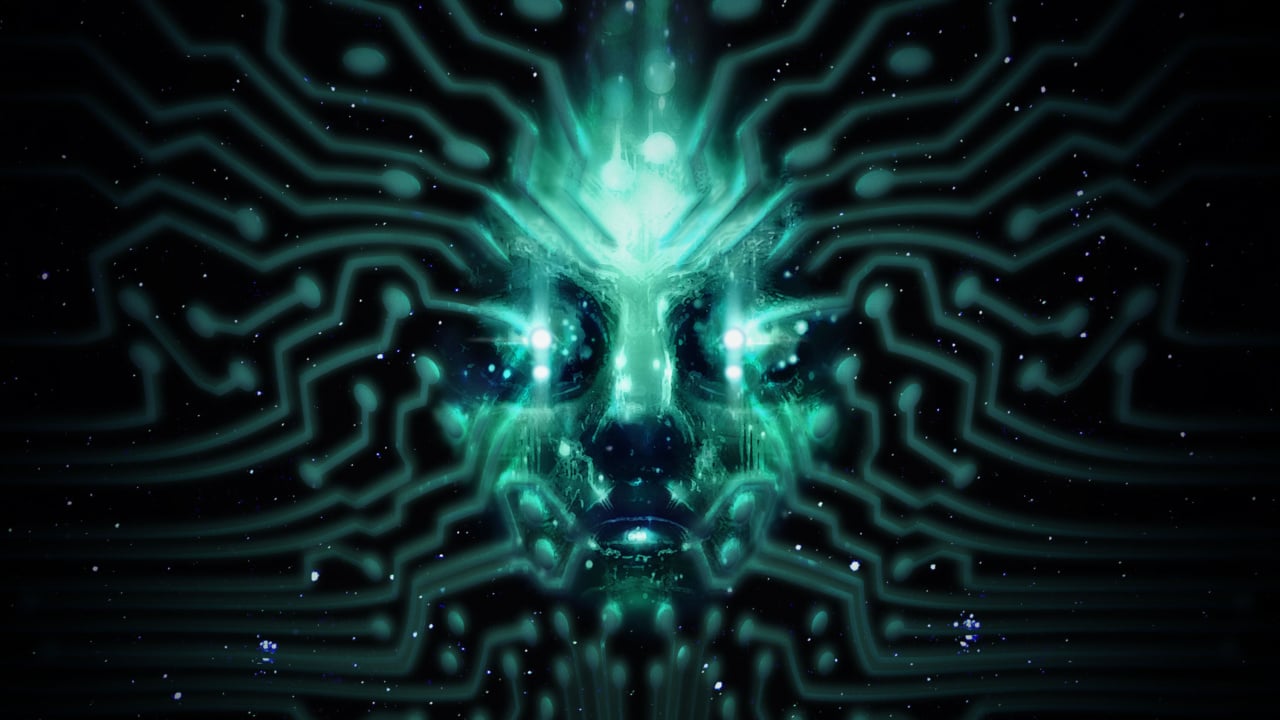They just don’t make them like they used to, do they? 30 years since its release on PC, the holy grail of addictive simulators, System Shock, makes its way to PS4 and PS5 with this slick remake. This is the first opportunity for us PlayStation players to check out the game that inspired games like PREY, Deus Ex and BioShock, and as such, assembling its labyrinthine space station is like a fun history lesson. But despite its new visual sheen, System Shock is really starting to show its age.
The original System Shock launched in 1994 and shaped an entire genre. Against the evil AI SHODAN, a nameless hacker must fight his way through the maze-like space station, gradually unlocking more areas in the process. Released in 2023 for PC, this remake from Nightdive Studios adds some modernized paint to this classic, with an overhaul of the visuals and gameplay that should appeal to new and returning players alike.

We want to start by saying that visually, System Shock is a real treat on PS5. It features this fascinating mixed art style of modern and retro aesthetics that perfectly embodies the original – as if Nightdive is trying to evoke what you i think the game looked like it used to. While it has that solid metal design throughout its many rooms and corridors, there are refreshing stretches of vibrant color that keep each of the game’s floors feeling fresh and unique. It’s topped off with solid PS5 performance, meaning you can slide from support to executive floors without a single stutter.
The first thing you’ll notice about System Shock is that it’s not there to help you at all. It is tough game, both through its battles and the grueling puzzles of the space station. That’s both the good and the bad of this remake, as it’s refreshing to play a game that actually makes you sift through text and audio logs. Something as simple as coming up with a code can require you to visit multiple areas on different levels of the station, and you’ll have to physically write down the code since the game won’t store it for you. Playing a game with a notebook next to you is a pretty niche aspect of a bygone era of gaming, but you’ll undoubtedly sit back a bit as System Shock challenges you in this way.

Finally figuring out a long-sought code or turning on the power that gives you access to a whole new level of the station is extremely satisfying. It’s also a game that feeds off your curiosity, where you can follow the storylines of hapless characters and slowly piece together the puzzle of the station’s AI takeover. Very rarely will System Shock spell it out for you, so if you’re not keen on sifting through reams of text then you’ll probably find its setup very superficial. You certainly won’t find any environmental storytelling here like in Dishonored for example, and System Shock does very little to establish a story prior to the ongoing takeover of SHODAN.
However, this is the seed of our disappointment with System Shock. Since much of the station’s context lies within the text and audio logs, there’s very little reason to explore its various corridors and offices outside of the need to progress to the next level. Every now and then you’ll find a new weapon or modkit station to upgrade your arsenal, but for the most part you’ll be wandering around in circles wondering what to do and where to go, and more than a few times you’ll spend more than 20 minutes trying to access a room that has very few prizes inside. System Shock is littered with dead ends, which in itself is fine, but with another audio diary is often the big prize, it’s hard not to feel enthusiastic sometimes.

Exploration can also feel mundane thanks to its crude recycling system, where you collect a bunch of junk, vaporize it to undo inventory issues, and then drive it to a recycling station to earn some Bitcoins. It’s nice to see what is clearly the beginning of the recycling system in PREY, but it doesn’t have quite the same satisfying cycle. It also makes it clear here that the game is not meant to be played with a controller. Inventory management is incredibly tedious and lacks the speed or ease of use you’ll find with a mouse and keyboard.
The frustrations carry over into the combat, which, to be honest, just isn’t great. To give it credit, System Shock tries to keep things fresh with the most random collection of enemies we’ve ever seen. From cyborgs to floating bacteria, there’s always an aspect of surprise when you encounter new enemy types, and things certainly get better as you discover better weapons. The problem though is that the combat never really has the weight or dynamism that you would get in the more modern versions. Melee weapons have no effect, weapons are missing oomphand with almost no cover, you’re basically trading shots with an enemy who practically never misses – and it’s the same in the cyberspace parts of the game.

The respawn system doesn’t help either. Since any damage you’ve dealt or enemies you’ve killed carries over when you respawn, there’s very rarely any sense of tension in combat. Once you unlock the respawn area on that floor, you can be back in action within 30 seconds. You then have the choice to either use your healing supplies to keep going or stockpile them for the boss fights, which means you’re constantly respawning, resulting in some progression. There’s an in-depth difficulty setting to counteract this if things get too hard, but strangely there’s no option to change this game environment, so you either have to stick with it or restart with a new save.
Conclusion
After all, System Shock is the faithful remake of a 30-year-old game, and you can feel that age in every aspect of its being. In a way, it’s a tantalizing look back at the game that started an entire genre, and if you have the enthusiasm or nostalgia for immersive sims like it, then it’s worth checking out for that alone. However, if you’re missing that nostalgic connection, then System Shock is more of a showcase for how far the genre has come, rather than a spotlight on how well it’s holding up. System Shock may have walked so others in the genre could run, but for us, that walk is too slow.



